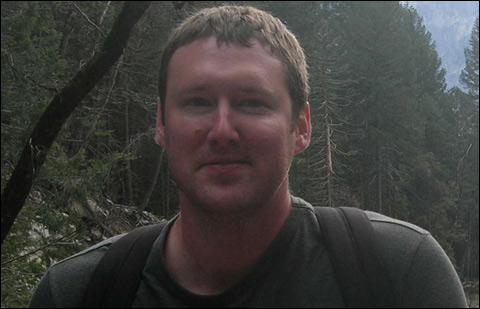
INTERNAL LANDSCAPES: The flora of Brandon’s Citrus County is as oppressive as the solipsism inherent in adolescence. |
| Citrus County | By John Brandon | McSweeney’s | 224 pages | $22 |
Pre-teen creeps abound in contemporary cinema. Always a staple of American horror fare, the trope has flourished in recent prize-winning European art films, from the proto-Nazis of
The White Ribbon to the maudlin vampire lover of
Let the Right One In. Pubescent weirdos have been conspicuously absent from the current crop of US literary fiction, however, and that goes far to explain why otherwise rational bookish types are so enamored of the films of Harmony Korine. This dearth could also explain, in part, why the first printing of
Citrus County sold out almost immediately.
The novel follows two 13-year-olds, Toby and Shelby, with anti-social tendencies. Toby, the markedly creepier of the two, is evil, or at least he believes himself to be. To wit: he kidnaps Shelby’s six-year-old sister, Kaley, and hides her in the woods. A synopsis reads like the TV Guide description of a Lifetime movie: orphan neglected by crazy uncle kidnaps little girl. The greatest of the novel’s many feats is its ability to make this plot seem plausible, almost inevitable.
Brandon’s writing is at once sweet and completely unsentimental. He uses direct sentences and simple language to devastating effect. He never tries to intellectualize the primal impulses of his pubescent creeps — or, for that matter, Citrus County’s sole intellectual.
That would be Mr. Hibma, Toby’s teacher and our entry into an alienating world. Detached almost to the point of sadism, Hibma feeds inaccuracies to his students while engaging them in endless, meaningless classroom games designed for his own amusement. He’s a college grad bewildered by his students, and by the backwoods of Florida, and his new circumstances drive him into a murderous fugue. Although we cannot help but identify with Hibma’s dislocation, its extremity compels empathy for the objects of his scorn: backwoods children and officious Christians we might otherwise fear or deride.
The landscape of Citrus County is a lot like Hibma’s temper — fecund and sometimes nasty. Dilapidated structures with concrete parking lots push back against the encroaching wilderness. Communal spaces like the tennis court that Toby and Shelby frequent are hidden by woods. The flora of Citrus County is as oppressive as the solipsism inherent in adolescence, and that shows Brandon’s talent in turning a landscape into a liminal state.
Just as remarkable is his ability to make a novelistic exploration of free will feel contemporary and urgent. Is Mr. Hibma fated to murder those who incur his wrath? Will Toby starve Kaley, or will he let her go? You could find yourself pleading with the characters to do the right thing. This seems like an old-fashioned way to read, but, by gum, Brandon pulls it off in such a way that it never feels dated or forced.
The ruminative criminal is emerging as his métier. Arkansas, his first novel, was about a group of thoughtful drug addicts as they rambled through that state, leaving a trail of accidental ruination in their wake. Like those trapped in Citrus County, Arkansas’s characters treat their malevolent impulses with gravitas, even when their reasons for being bad are cloudy at best. Leading experts like Bret Easton Ellis dictate that evil must be banal; many novelists don’t bother with the possibility of evil at all. Citrus County trades once-voguish apathy for bruised idealism. Thank goodness for that.